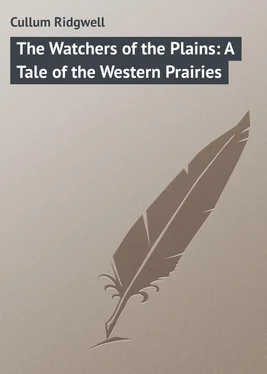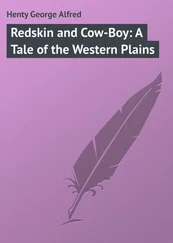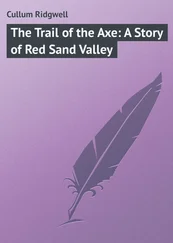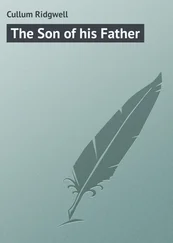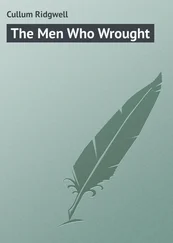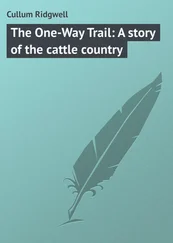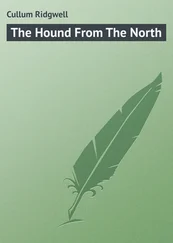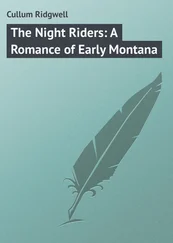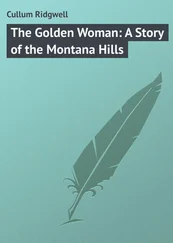Ridgwell Cullum - The Watchers of the Plains - A Tale of the Western Prairies
Здесь есть возможность читать онлайн «Ridgwell Cullum - The Watchers of the Plains - A Tale of the Western Prairies» — ознакомительный отрывок электронной книги совершенно бесплатно, а после прочтения отрывка купить полную версию. В некоторых случаях можно слушать аудио, скачать через торрент в формате fb2 и присутствует краткое содержание. Жанр: foreign_language, foreign_prose, foreign_adventure, на английском языке. Описание произведения, (предисловие) а так же отзывы посетителей доступны на портале библиотеки ЛибКат.
- Название:The Watchers of the Plains: A Tale of the Western Prairies
- Автор:
- Жанр:
- Год:неизвестен
- ISBN:нет данных
- Рейтинг книги:5 / 5. Голосов: 1
-
Избранное:Добавить в избранное
- Отзывы:
-
Ваша оценка:
- 100
- 1
- 2
- 3
- 4
- 5
The Watchers of the Plains: A Tale of the Western Prairies: краткое содержание, описание и аннотация
Предлагаем к чтению аннотацию, описание, краткое содержание или предисловие (зависит от того, что написал сам автор книги «The Watchers of the Plains: A Tale of the Western Prairies»). Если вы не нашли необходимую информацию о книге — напишите в комментариях, мы постараемся отыскать её.
The Watchers of the Plains: A Tale of the Western Prairies — читать онлайн ознакомительный отрывок
Ниже представлен текст книги, разбитый по страницам. Система сохранения места последней прочитанной страницы, позволяет с удобством читать онлайн бесплатно книгу «The Watchers of the Plains: A Tale of the Western Prairies», без необходимости каждый раз заново искать на чём Вы остановились. Поставьте закладку, и сможете в любой момент перейти на страницу, на которой закончили чтение.
Интервал:
Закладка:
Cullum Ridgwell
The Watchers of the Plains: A Tale of the Western Prairies
CHAPTER I
A LETTER
A solitary hut, dismal, rectangular, stands on the north bank of the White River. Decay has long been at work upon it, yet it is still weather-proof. It was built long before planks were used in the Bad Lands of Dakota. It was built by hands that aimed only at strength and durability, caring nothing for appearances. Thus it has survived where a lighter construction must long since have been demolished.
And it still affords habitation for man. The windows have no glass; the door is a crazy affair; there is an unevenness in the setting of the lateral logs which compose its walls; the reed thatching has been patched where the weather has rotted it; and here and there small spreads of tarpaulin lend their aid in keeping out the snows of winter and the storms of summer. It occupies its place, a queer, squat sentry, standing midway between the cattle ford and the newer log wagon-bridge lower down the river toward its mouth, where it joins the giant Missouri some two hundred miles distant. It backs into the brush fringing the wood-lined river bank, and is dangerously sheltered from the two great Indian Reservations on the other side of the river. Dangerously, because it is at all times dangerous to live adjacent to woods when so near such a restless race as the Indians on the Rosebud and the Pine Ridge Reservations. Still, it has stood there so long, and yet bears no sign of hostile action directed against it by the warlike Sioux, that it seems safe to reckon it will continue to stand there in peace until decay finishes it off. And the fact is significant.
Those who lived in that hut must have had reason to know that they dwelt there in safety.
The present tenant of the hut is a white man. He is seated on the tread of his crazy doorway, holding an open letter in one hand, while he stares in an unpleasantly reflective manner out across the prairie in front of him.
And the letter, which is slowly crumpling under the clutch of his nervous fingers, is worthy of attention, for it is written on crested paper which is blue. And the ink is blue, too, and might reasonably indicate the tone of the blood of the sender, though hardly of the recipient.
Still appearances are deceptive on the prairie with regard to human beings, even more so perhaps than elsewhere. This man has a something about him which speaks of a different life – a life where people live in greater ease and more refined surroundings. But even so, his face is very mean and narrow; an appearance in nowise improved by its weather-stained, unwashed condition.
Nevil Steyne – for that is the man’s name – has read the letter, and now he is thinking about it. And as he thinks, and mentally digests that which a right-minded man would accept as its overwhelmingly kindly tone, his anger rises slowly at first, but ever higher and higher, till it culminates in a bitter, muttered exclamation.
“The crawler!” he said under his breath.
Suddenly he looked down at the paper, and proceeded to straighten it out. And his pale blue eyes were glittering as he read the letter again from beginning to end. The very crest at the top was an aggravation to him. And he conjured meaning between the lines as he went, where meaning lay only in what was written.
The heading bore a date at New York. It had been written on the second of June – ten days earlier. And it was a letter that should have put joy into his heart, rather than have raised his anger and hatred.
“My dear Brother (it ran) —
“It is possible that a letter from me may not be as welcome as I try to hope. I can only trust that your resentment against me has abated in these long twelve years since you cut yourself out of my life. I know you blamed me for what happened at our father’s death. You said nothing, would not see me, or the whole thing could have been adjusted then. You went off believing what was not true. Whether father treated you justly or unjustly you are the best judge. From my point of view it was the latter. It was always a mystery to me that he cut you out of his will. I was as disappointed as you, and it is for that reason that, for twelve years, I have been seeking you, to restore to you your share of the property. My dear boy, I’m sure you cannot imagine what joy it is to me that at last I am able to write this, that at last I shall be able to say it to you. We both know what a martinet father was, and what a disappointment it was to him when you refused to adopt the army and join me in following in the old boy’s footsteps, but, unless there was something else between you, that was insufficient reason for the injustice of his will.
“Well, all that is past now. What I have set aside as your share is untouched, and has been accumulating all these years. It is waiting for you. If you refuse it, I shall never touch it. In that case it remains tied up for my little daughter, at such time as she shall marry. But of course I have done this only as an emergency. You will not, I know, refuse it.
“Thank God, I have found you at last, dear old boy! Now, listen! I have set my plans with great care, and hope you will appreciate them. I do not want to subject you to any curiosity among our friends – you know how inquisitive people are – so I have come out here ostensibly on a big game shoot in the Rockies. Alice, my wife – you remember Alice Travers – and little Marjorie, our daughter, are with me. They know nothing of my secret. We shall break our journey at Sioux City, and then come across to you by road. And, lo! when we arrive my little surprise for them – Marjorie finds an uncle, Alice a brother.
“In conclusion, I hope to be with you on the 16th at latest; we shall come by way of the south bank of the Missouri River, then across the Pine Ridge Reservation, and so on to Beacon Crossing. I hope to find you as young in spirit as ever. I have many gray hairs, but no matter, so long as I find you well I shall be more than satisfied. Au revoir.
“Your affectionate “Landor.”“ Au revoir ,” muttered the man, as he viciously tore the letter into the minutest fragments, and ground them into the hard earth with a ruthless heel. “ Au revoir ,” he said again, and louder. Then he laughed. “But we haven’t met yet. Why should I take a share when you and your wife, and your brat are the only people who stand between me and the lot?”
And after that he relapsed into silence, and his thoughts flew on apace. The unwashed face grew meaner and more brooding, the fair brows drew closer over the large blue eyes, the jaws were shut as tight as they well could be, for he was painfully overshot, and his chin was almost hidden, so far receding was it under the long, drooping, tobacco-stained moustache.
That letter, it would seem, required no depth of thought, unless it were the happy thought that he possessed such a brother. It seemed to be a moment for nothing but happiness. And in such a man one might reasonably have expected to see him mount the horse tethered a few yards away in front of the hut, and ride into Beacon Crossing, where he could tell his associates of his good fortune, and celebrate it in the usual manner.
But there was nothing of happiness in the face that stared so steadily out at the hazy sky-line in the direction of the Cheyenne Reservation away to the north. There was a hard look, such as is to be seen only in pale blue eyes; – a look of unyielding hatred and obstinacy; a look which, combined with the evident weakness of character displayed in his features, suggested rather the subtle treachery of a coward than the fierce resentment of a brave man.
Never was a character more fully laid bare than was his at that moment. He was conscious of his isolation. There was no one to see. He hated his brother as a weak nature hates a strong. He hated him because years ago he, Nevil, had refused to go into the army for the reason of an obstinate cowardice, while his younger brother gladly embraced the profession of which their father, the stern old general, had been such an honored member. And so he had eschewed his mother country, leaving England, when he had been disinherited, for the wilderness of South Dakota, and had become one of those stormy petrels which, in those days, were ever to be found hovering about the territory set apart for the restless Indians. Yes, and with his destruction of that kindly, simple letter his resolve had been taken. He would have nothing at the hands of the man who had ousted him.
Читать дальшеИнтервал:
Закладка:
Похожие книги на «The Watchers of the Plains: A Tale of the Western Prairies»
Представляем Вашему вниманию похожие книги на «The Watchers of the Plains: A Tale of the Western Prairies» списком для выбора. Мы отобрали схожую по названию и смыслу литературу в надежде предоставить читателям больше вариантов отыскать новые, интересные, ещё непрочитанные произведения.
Обсуждение, отзывы о книге «The Watchers of the Plains: A Tale of the Western Prairies» и просто собственные мнения читателей. Оставьте ваши комментарии, напишите, что Вы думаете о произведении, его смысле или главных героях. Укажите что конкретно понравилось, а что нет, и почему Вы так считаете.
